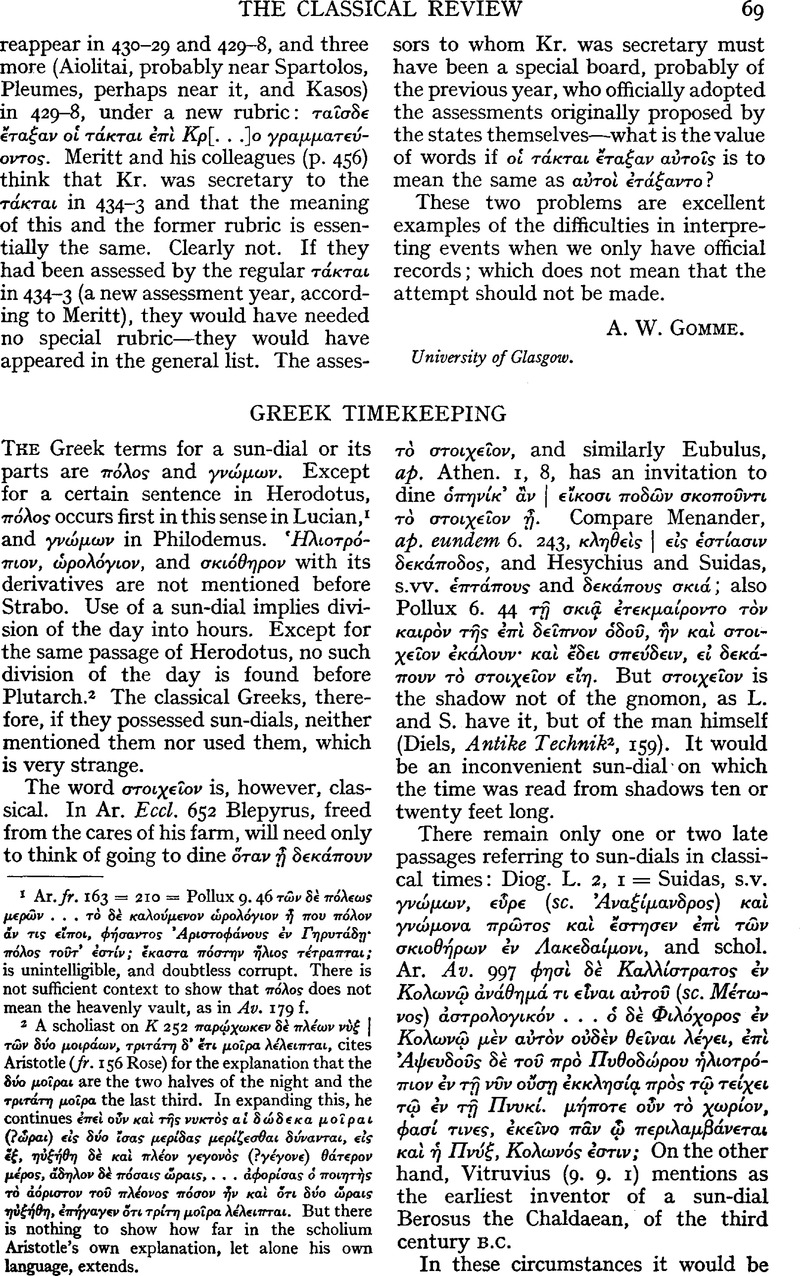Published online by Cambridge University Press: 27 October 2009

1 Al.fr. 163 = 2IO = Pollux 9. 46 ![]() is unintelligible, and doubtless corrupt. There is not sufficient context to show that iroXos does not mean the heavenly vault, as in Av. 179 f.
is unintelligible, and doubtless corrupt. There is not sufficient context to show that iroXos does not mean the heavenly vault, as in Av. 179 f.
2 A scholiast on K 252 ![]() cites Aristotle (Jr. 156 Rose) for the explanation that the δύо μоίρί are the two halves of the night and the тρίтάтη ηоρα the last third. In expanding this, he continues
cites Aristotle (Jr. 156 Rose) for the explanation that the δύо μоίρί are the two halves of the night and the тρίтάтη ηоρα the last third. In expanding this, he continues  But there is nothing to show how far in the scholium Aristotle's own explanation, let alone his own language, extends.
But there is nothing to show how far in the scholium Aristotle's own explanation, let alone his own language, extends.